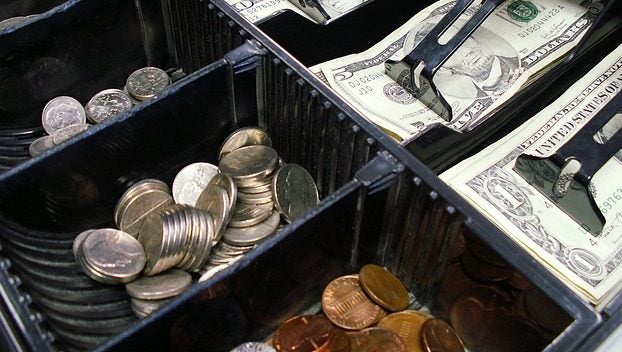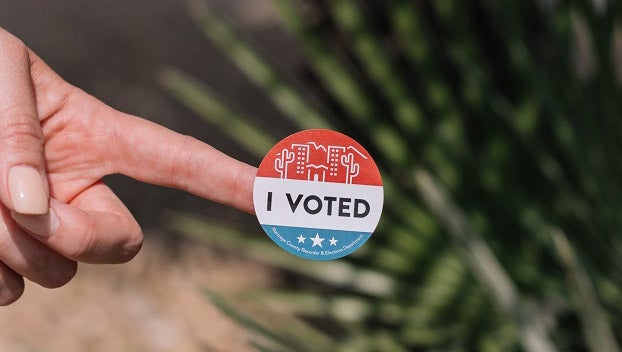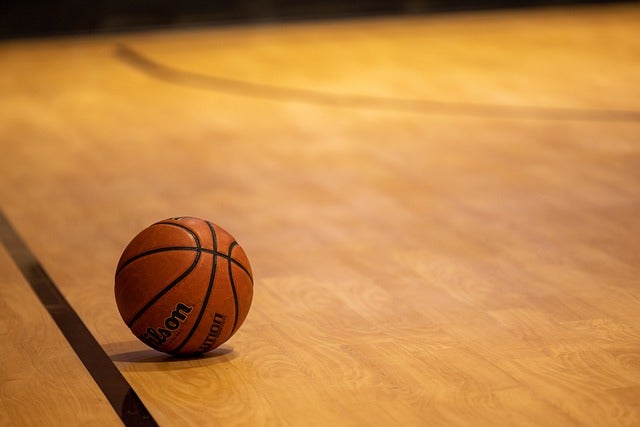Tax-free holiday returns to Virginia this week. What qualifies?
Published 12:06 am Wednesday, October 18, 2023
|
Getting your Trinity Audio player ready...
|
Make plans now to stock up on items such as school supplies, clothing, footwear and hurricane preparedness supplies as Virginia’s tax-free holiday returns Oct. 20-22.
It also provides an opportunity to make some larger purchases of Energy Star and WaterSense qualified appliances and products free of sales tax.
Offering a chance to save 5.3% on eligible purchases, the sales tax holiday was left in question for 2023 when it expired June 30 as the General Assembly failed to approve a budget. It was reinstated when lawmakers finally reached a compromise that won approval Sept. 6 and included amendments bringing back the weekend to shop free of sales tax.
Gov. Glenn Youngkin pushed for the sales tax holiday as part of his effort to reduce taxes on Virginians. The governor’s spokeswoman Macaulay Porter said he is pleased the General Assembly included it in Virginia’s budget.
“The governor encourages Virginians to take advantage of the sales tax holiday during the weekend of Oct. 20,” she said.
Virginia Department of Taxation Director of Communications and Training Heather L. S. Cooper explained that the previous sales tax holiday guidelines on the Virginia Regulatory Town Hall site applied until July 1 of this year.
The General Assembly closed its session in March without taking action to extend it, along with not reaching agreement on the state budget.
Making changes in September
During the special session where the budget compromise was reached, Cooper explained that amendments to House Bill 6001 “reinstated the combined retail sales and use tax holiday, applicable to Energy Star or WaterSense qualified products, school supplies, clothing and footwear, and certain hurricane preparedness equipment, through July 1, 2025.”
Cooper provided the guidelines for the upcoming sales tax holiday that were published in a department document Sept. 15.
It states this year’s delayed program begins at 12:01 a.m. Friday, Oct. 20 and ends at 11:59 p.m. Sunday, Oct. 22. Future ones will return to the first weekend of August that has been the traditional time for the savings program, falling ahead of the opening of the school year.
The program includes the maximum price of individual items that are eligible for purchase, but no limit on the total amount a person can spend as they stock up during the sales tax holiday.
Here are the guidelines for making purchases on qualifying items:
School supplies, clothing and footwear
- New or used school supplies must have a selling price of $20 or less each. The department’s document defines school supplies as “means an item that is commonly used by a student in a course of study. For purposes of the sales tax holiday, the term does not include computers.”
- Each new or used item of clothing or footwear must be $100 or less. The guidelines state that clothing is “any article of wearing apparel and typical footwear intended to be worn on or about the human body. Clothing does not include sporting equipment or footwear designed primarily for athletic activity or protective use and not usually considered appropriate for everyday wear.”
EnergyStar and WaterSense items
- These eligible items must carry the designation from the Environmental Protection Agency or the Department of Energy that they meet or exceed the requirements of the appropriate federal program.
- Items must be priced at $2,500 or less each.
- Can only be purchased for non-commercial home or personal use
- Carry the Energy Star or WaterSense label
Hurricane preparedness items
- New or used portable generators must have a sales price of $1,000 or less per item.
- Gas powered chain saws have a price limit of $350 or less each.
- Chainsaw accessories costing $60 or less per item qualify. These can include chains, chain saw lubricants, two-cycle motor oil, sharpeners, bars, wrenches, carrying cases/scabbards, safety apparel specific to chain saws and repair parts for them.
- Other specified hurricane preparedness items with a $60 or less price qualify. Among items listed in the guidelines are artificial or reusable ice packs, batteries for devices and cell phones (excludes automobile and boat batteries), flashlights, portable battery-powered or self-powered radios, weather radios, two-way radios, tarps/plastic or waterproof sheeting, first aid kits, storm shutter devices, bottled water, manual can openers, smoke detectors, fire extinguishers and duct tape.
Other tax-free holiday details
The guidelines published by the state Department of Taxation explain that items purchased during the sales tax holiday can be exchanged for a similar item without additional tax due, even if this is after the exemption period.
However, it states if a return is made and a customer receives credit back for the item and then makes a separate purchase that sales tax must be charged in this case.
The guidelines explain that in specific instances, shoppers can also make layaway purchases and get the sales tax savings.
“The sale of a qualifying item under a layaway sale is exempt from tax if the purchaser selects the item and the retailer accepts the order for the item during the holiday period, even if delivery occurs after the holiday period,” the guidelines state. “Subsequent payments are also exempt. Items placed on layaway prior to the sales tax holiday are eligible for the exemption only if final payment is made during the exemption period.”
There are other limitations on purchases to ensure they fall under the eligibility pricing limits. For example, guidelines explain a $120 pair of shoes can be broken down into two $60 per shoe items, because they are normally sold as a unit.
Buy one, get one free offers also must meet the limits for each item, not because of the special offered by a merchant.
For example, a special where $30 calculators are buy one, get one free does not qualify because the customer has to buy one at a cost above the $20 school supply limit.
Discount coupons from either a merchant or the manufacturer that drop the sales price below the limit do mean the item is eligible for the sales tax exemption, the guidelines explain.
If a customer has a 50% off store coupon and wants to buy a $120 pair of shoes, it qualifies because the actual purchase price is now below the $100 footwear limit.
“A gift certificate may not be used to reduce the sales price of an item in order to
render that item eligible for exemption,” according to the Department of Taxation. However, a gift certificate can be used toward the purchase price as long as the item itself fall at or below the eligibility limit.
Those mail-in rebates often offered when a customer purchases an item such as an appliance or a generator cannot be used in the calculation of the amount paid.
For those shopping online, the shipping and handling charge is not considered part of the price of an eligible item. But the guidelines say those extended warranties offered at the time of sale do not qualify for the sales tax exemption, even if the item being purchased does.
For more details on the sales tax holiday guidelines, view the Department of Taxation guidelines document at tax.virginia.gov/virginia-sales-tax-holiday.






